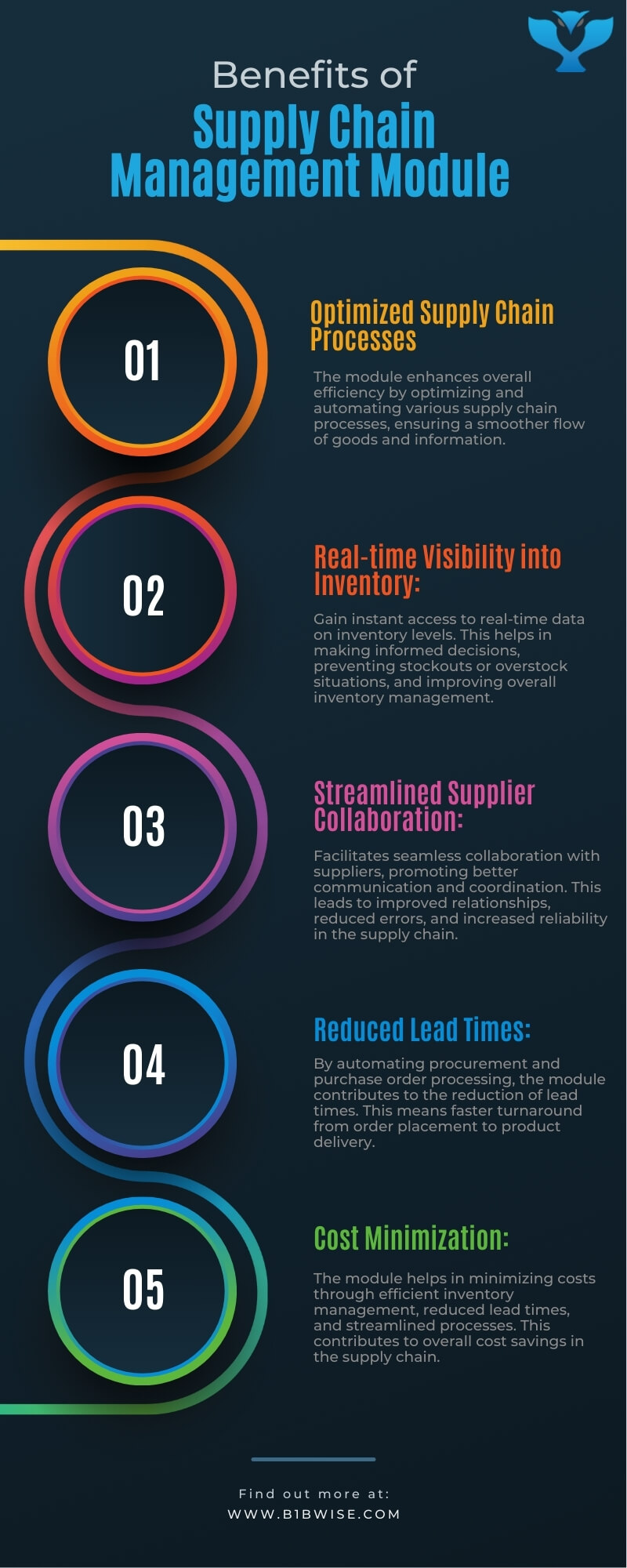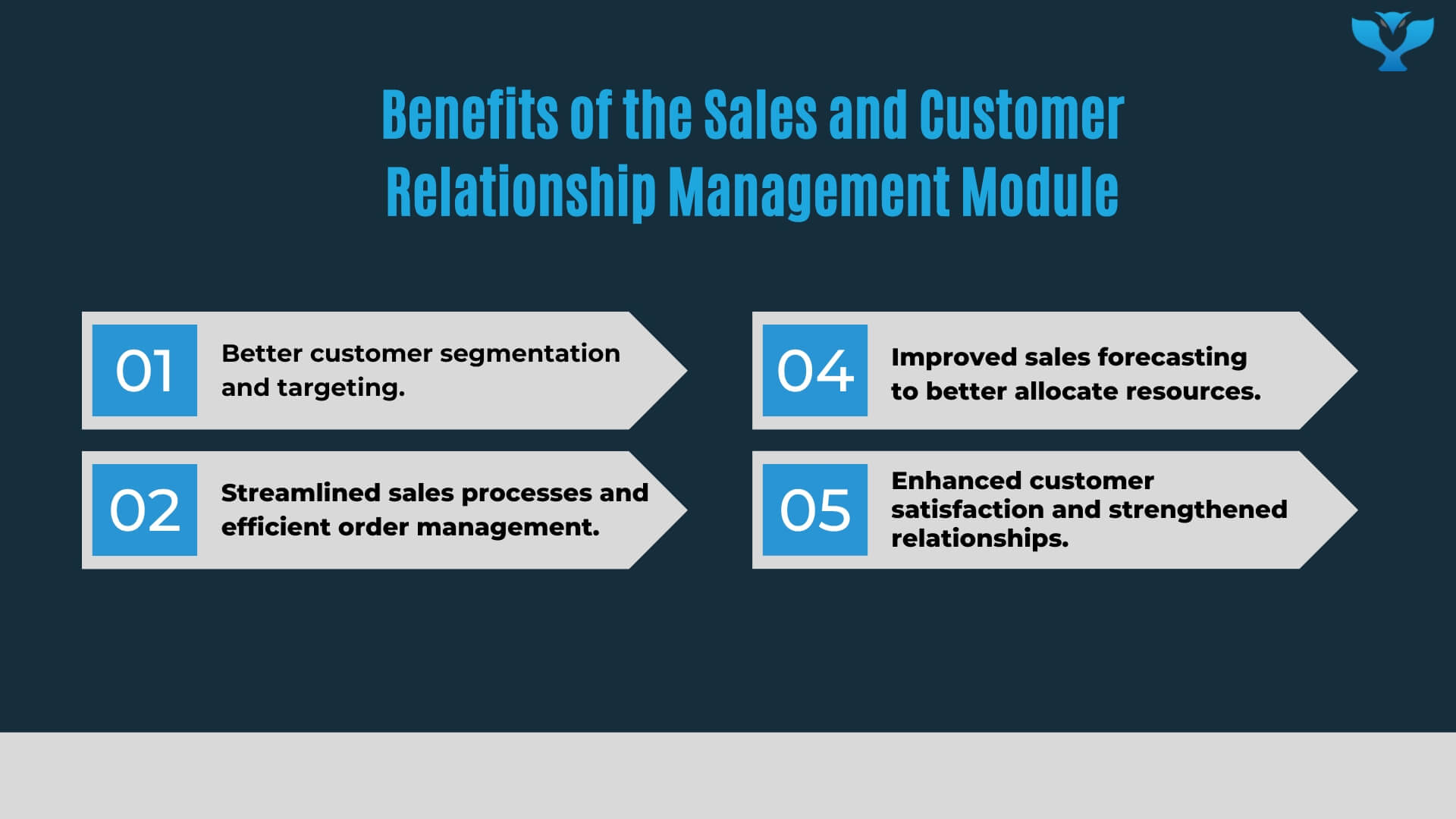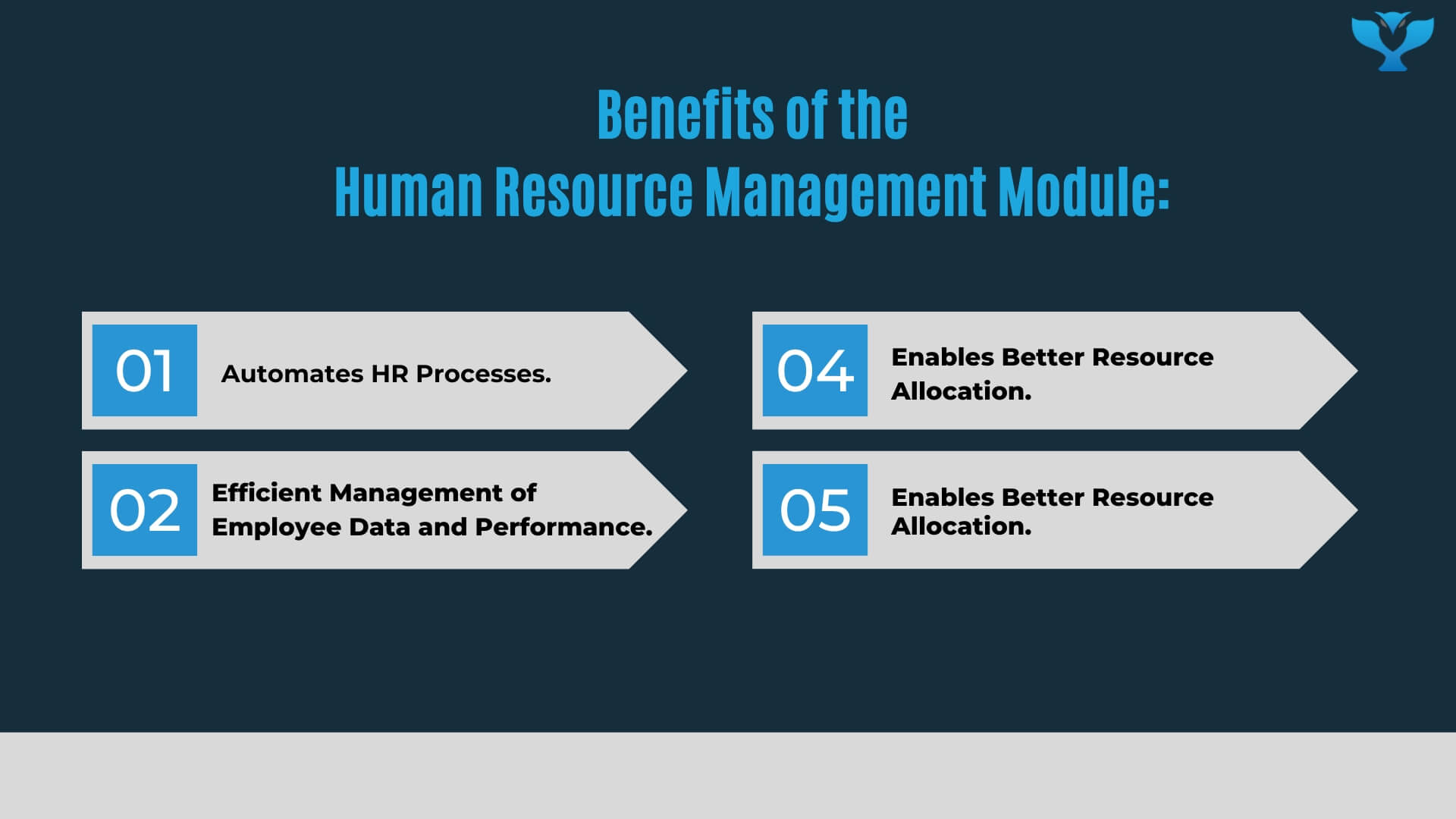
In today’s rapidly evolving manufacturing landscape, it is essential to stay competitive by constantly innovating and improving core business processes. One effective way to achieve this is by leveraging manufacturing ERP modules.
Manufacturing ERP modules are a set of software tools that can help businesses automate, manage, and optimize critical manufacturing operations, including production planning and control, inventory management, supply chain management, quality management, financial management, sales and customer relationship management, human resource management, business intelligence and analytics, and mobile access and collaboration.
In this article, we will explore nine essential manufacturing ERP modules that can enable businesses to achieve efficiency, increase productivity, and enhance decision-making. By integrating these modules into your next ERP solution, you can unlock the full potential of your manufacturing operations and drive business success.
Key Takeaways
- Manufacturing ERP modules are software tools that can help businesses optimize critical manufacturing operations.
- Nine essential manufacturing ERP modules include production planning and control, inventory management, supply chain management, quality management, financial management, sales and customer relationship management, human resource management, business intelligence and analytics, and mobile access and collaboration.
- Integrating these modules into your next ERP solution can enhance productivity, efficiency and improve overall business outcomes.
- Manufacturing ERP modules can provide real-time visibility into inventory levels, streamline supply chain processes, and ensure compliance with labor regulations.
Topics
- Production Planning and Control Module
- Inventory Management Module
- Supply Chain Management Module
- Quality Management Module
- Financial Management Module
- Sales and Customer Relationship Management Module
- Human Resource Management Module
- Business Intelligence and Analytics Module
- Mobile Access and Collaboration Module
- FAQ
- Conclusion
1. Production Planning and Control Module
The production planning and control module is a critical component of any modern manufacturing ERP system. It allows businesses to create and manage production schedules, monitor job progress, and allocate resources efficiently. With this module, you can optimize your production capacity and minimize downtime, resulting in improved throughput and productivity.
2. Inventory Management Module
The inventory management module is a key component of a manufacturing ERP system. It helps businesses keep track of inventory levels, monitor stock movements, and streamline procurement processes. By providing real-time visibility into inventory across multiple locations, this module minimizes stockouts and reduces excess inventory holding costs, enhancing customer satisfaction, and reducing carrying costs.
| Benefits | Features |
| Provides real-time inventory visibility | Tracks stock movements |
| Minimizes stockouts and reduces excess inventory holding costs | Manages stock levels across multiple locations |
| Enhances customer satisfaction | Streamlines procurement processes |
3. Supply Chain Management Module
The supply chain management module is an essential component for optimizing the flow of goods and services in a manufacturing ERP system. This module integrates procurement, logistics, and demand planning to streamline supplier collaboration, reduce lead times, and manage inventory effectively. When this module is implemented, businesses can enhance overall supply chain efficiency, minimize costs, and improve customer service.
Real-time Visibility into Inventory
The supply chain management module provides real-time visibility into inventory, enabling businesses to manage inventory levels effectively across multiple locations. With this feature, businesses can minimize stockouts, reduce excess inventory holding costs, and enhance customer satisfaction by delivering products on time. It also allows evaluating and adjusting reorder points efficiently, ensuring that inventory levels are always optimized.
Automates Procurement and Purchase Order Processing
The supply chain management module automates procurement processes, reducing manual errors and streamlining purchase order processing. It enables businesses to create purchase requisitions, place orders electronically, and track shipments with ease. With this feature, businesses can reduce lead times, improve supplier collaboration, and enhance overall procurement efficiency.
Provides Performance Metrics and KPIs
The supply chain management module provides performance metrics and KPIs that enable businesses to track their supply chain performance effectively. With this feature, businesses can monitor supplier performance, track order fulfillment, and analyze key supply chain metrics such as cycle time, inventory turnover, and fill rate. This data enables businesses to make data-driven decisions and optimize their supply chain operations.
4. Quality Management Module
Excellent quality management is paramount to any successful manufacturing operation. The quality management module is a crucial component of any ERP solution. This module delivers comprehensive quality control measures to ensure that every stage of a product’s development meets the appropriate quality standards. Additionally, it allows businesses to track non-conformances and establish prompt corrective action to minimize defects, waste, and production interruptions.
When integrated with other manufacturing ERP modules, the quality management module can seamlessly coordinate quality control and improve production efficiency, resulting in consistently high-quality products. By implementing the quality management module, businesses can meet regulatory requirements, reduce reworks and scrapping, and elevate customer satisfaction.

5. Financial Management Module
The financial management module is an essential component of manufacturing ERP systems. This module allows businesses to integrate financial operations with other modules, providing better visibility and control over their finances.
With the financial management module, you can manage accounting functions, including accounts payable and receivable, general ledger, and fixed assets. You can also track costs and expenses, generate financial reports, and analyze financial data to gain insights into your financial performance.
The financial management module provides businesses with the tools to improve cost control, reduce financial risks, and make informed business decisions. It enables better planning and forecasting, enhances financial transparency, and supports compliance with regulatory requirements.
6. Sales and Customer Relationship Management Module
The sales and customer relationship management module are an indispensable tool for businesses looking to streamline their sales processes. By allowing them to manage customer interactions and order management, businesses can improve their sales forecasting and target better customer segments. In turn, this will enhance customer satisfaction and drive sales growth.
Optimizing Sales Processes
The sales and customer relationship management module allows businesses to integrate their sales processes with customer interactions and order management. By using this module, businesses can streamline their sales pipeline and reduce the time and effort spent on manual tasks. Moreover, the module provides advanced analytics and reporting capabilities, allowing businesses to track key sales metrics such as conversion rates and deal pipeline.
Improving Customer Satisfaction
By using the sales and customer relationship management module, businesses can track customer interactions and preferences. This enables them to identify customer needs and respond to them in a timely and effective manner. What is more, the module provides real-time updates on order status and shipments, allowing customers to track their orders and receive accurate delivery estimates. By improving customer satisfaction, businesses can build stronger customer relationships and foster customer loyalty.

7. Human Resource Management Module
The success of any manufacturing business depends on its workforce. The human resource management module automates HR processes, providing businesses with a streamlined workflow to manage employee data, attendance tracking, performance management, and payroll processing. By using this module, businesses can efficiently manage their workforce, make informed decisions, improve productivity, and result in employee satisfaction.
8. Business Intelligence and Analytics Module
The business intelligence module and analytics module are key components of a manufacturing ERP system that enable businesses to leverage data from multiple sources and generate actionable insights to support data-driven decision-making.
With the business intelligence module, you can visualize data in dynamic dashboards that highlight key performance indicators and uncover trends that can guide optimization initiatives. The analytics module allows you to perform advanced data analysis, such as forecasting and predictive modeling, to facilitate proactive decision-making and strategic planning.
9. Mobile Access and Collaboration Module
The mobile access and collaboration module is a meaningful change when it comes to ERP systems. It allows employees to access critical data and collaborate in real-time from their mobile devices, anywhere, anytime. By fostering a more connected and flexible work environment, the mobile access and collaboration module empowers your team to stay productive when they are on the move, enhancing productivity and business agility.
Benefits of the Mobile Access and Collaboration Module
|
Benefits |
Description |
|
Flexibility |
The mobile access and collaboration module enables employees to work on-the-go, increasing flexibility. |
|
Improved Communication |
The module facilitates real-time communication among team members, improving collaboration and overall efficiency. |
|
Increased Productivity |
Thanks to mobile access, your team members can access ERP system data wherever they are, reducing downtime and boosting productivity. |
To remain competitive in today’s fast-paced business environment, you need real-time data and decision-making. By integrating the mobile access and collaboration module in your manufacturing ERP system, you will be fostering a more connected, agile, and responsive organization that can help you achieve better business outcomes.
FAQ
What are manufacturing ERP modules?
Manufacturing ERP modules are components or features of an ERP system specifically designed to optimize production processes, inventory management, and supply chain operations in the manufacturing industry.
How can manufacturing ERP modules optimize production?
By implementing manufacturing ERP modules such as production planning and control, businesses can create and manage production schedules, monitor job progress, and allocate resources efficiently. This optimization helps ensure optimal utilization of production capacity, reduce downtime, and improve overall throughput.
What is the purpose of the inventory management module in manufacturing ERP?
The inventory management module helps businesses maintain accurate inventory levels, track stock movements, and streamline procurement processes. It provides real-time visibility into inventory across multiple locations, minimizing stockouts and reducing excess inventory holding costs. Effective inventory management enhances customer satisfaction and reduces carrying costs.
How does the supply chain management module benefit manufacturing businesses?
The supply chain management module integrates various aspects of the supply chain, including procurement, logistics, and demand planning. It enables businesses to optimize their supply chain processes, streamline supplier collaboration, and reduce lead times. Leveraging this module enhances overall supply chain efficiency, minimizes costs, and improves customer service.
What is the role of the quality management module in manufacturing ERP?
The quality management module helps businesses maintain and improve product quality by implementing comprehensive quality control measures, tracking non-conformances, and managing corrective actions. It ensures compliance with regulatory requirements, reduces rework and scrap, and enhances customer satisfaction by consistently delivering high-quality products.
How can the financial management module contribute to manufacturing operations?
The financial management module integrates financial operations with other modules of the manufacturing ERP system. It enables businesses to manage accounting functions, track costs, and generate financial reports. By utilizing this module, businesses gain better insights into their financial performance, improve cost control, and make informed business decisions.
What does the sales and customer relationship management module offer to manufacturing businesses?
The sales and customer relationship management module helps businesses manage their sales processes, track customer interactions, and streamline order management. It enables better customer segmentation and targeting, improves sales forecasting, and enhances customer satisfaction. By utilizing this module, businesses can strengthen customer relationships and drive sales growth.
What are the benefits of using the human resource management module in manufacturing?
The human resource management module automates HR processes such as employee data management, attendance tracking, performance management, and payroll processing. It enhances workforce productivity, enables better resource allocation, and ensures compliance with labor regulations. By using this module, businesses can efficiently manage their workforce and improve employee satisfaction.
How can the business intelligence and analytics module support manufacturing operations?
The business intelligence and analytics module provide businesses with actionable insights by leveraging data from various sources. It enables data visualization, reporting, and advanced analytics to support data-driven decision-making. With this module, businesses can monitor key performance indicators, identify trends, and uncover opportunities for process optimization and business growth.
What advantages does the mobile access and collaboration module offer to manufacturing businesses?
The mobile access and collaboration module enables employees to access the manufacturing ERP system on mobile devices, facilitating real-time collaboration and decision-making. This module enhances flexibility, improves communication, and empowers employees to stay productive even when they are on the move. With mobile access and collaboration, businesses can foster a more agile and responsive organization.
Conclusion
Manufacturers today face increasing pressure to optimize their operations, reduce costs, and leverage digital technologies. By implementing the right ERP system such as BWISE, businesses can meet these challenges and achieve better outcomes.
In this article, we have explored nine essential manufacturing ERP modules that can help businesses improve their production processes, streamline their supply chain, and enhance overall productivity. These modules include production planning and control, inventory management, supply chain management, quality management, financial management, sales and customer relationship management, human resource management, business intelligence and analytics, and mobile access and collaboration.
If you are considering investing in a manufacturing ERP system, it is essential to evaluate its features carefully. You must ensure the chosen system meets your business needs and goals. By selecting a system with the appropriate modules, you can optimize your manufacturing operations and drive business success.
At BWISE, our experts can help you select the right ERP system for your business. Contact us today to learn more about how we can help you optimize your manufacturing operations and drive your business forward.

